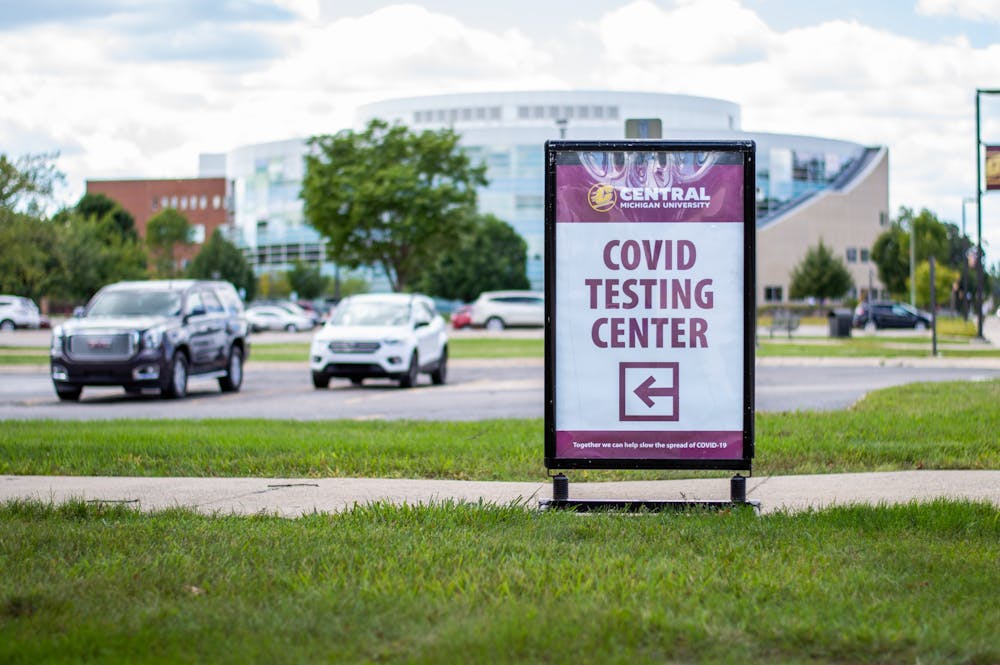CMU conducts 'COVID-19 Surveillance Survey'
Central Michigan University is conducting a "COVID-19 Surveillance Survey" to determine the potential number of asymptomatic COVID cases on campus starting Sept. 22 through Oct. 15.
The surveillance survey consists of two parts, taking a quick survey by answering some questions and testing for COVID-19. The test itself will help to figure how frequent asymptomatic cases are on campus.
"(The survey) asks questions that will help us determine how representative the people who come in are of the campus population as a whole," said Dr. Beth Bailey, CMU professor and research administrator for the College of Medicine.
Survey questions will be based on where members of the CMU community have been congregating, how often they go home and where they eat.
By taking the survey, it will be easier to "start to identify potential pockets and clusters," of the virus as well as find possible risk factors, Bailey said.
The university is asking for volunteers who frequent campus, are not currently experiencing any symptoms of COVID-19, have not been in close contact with anyone who has been confirmed to test positive for the virus and have not tested positive for COVID-19 in the past.
"What we're really hoping to do is perhaps educate people about what some of these risk factors are," Bailey said. "We're asking them to come in so that we can see what is going on, on the campus related to COVID because we know a lot of people are asymptomatic that have it."
The College of Medicine is hoping to test five percent, about 200 members, of the campus community to get a representation of how common asymptomatic cases may be. Willing participants have been requested to sign up through Microsoft Outlook, and go to room 28A in the lower level of Foust Hall at the time they choose.
Testing will be taking place Tuesdays, Wednesdays and Thursdays until Oct. 15.
"By volunteering, students will be providing us with valuable information to quickly make decisions that can help us keep everyone on the campus and in the surrounding area safer... as many as 40 percent of people with COVID-19 have no symptoms, but can still spread the infection to others," Bailey said. "Asymptomatic students who find out they are positive will be able to take action to reduce their risk of spreading the infection to others so they can keep their friends, fellow students, and loved ones safe."







